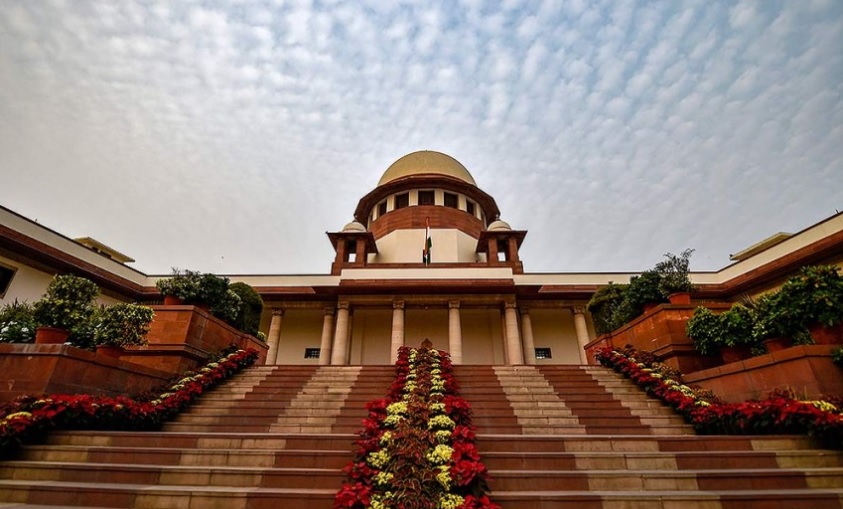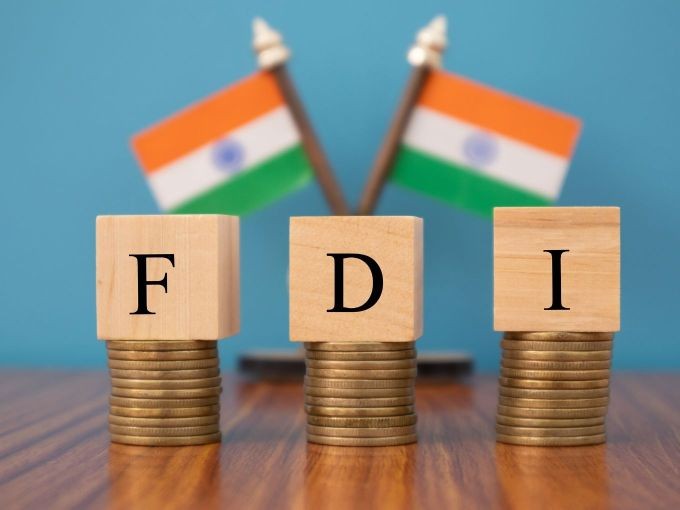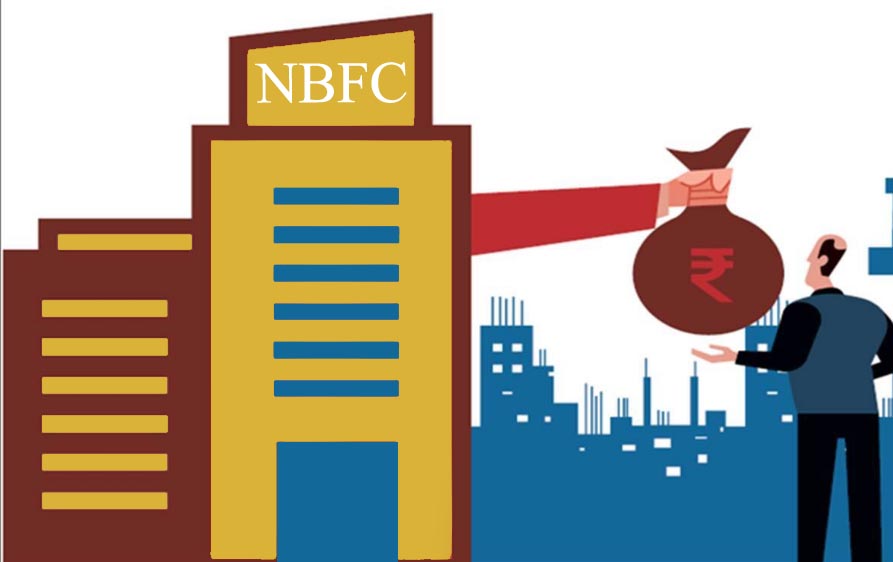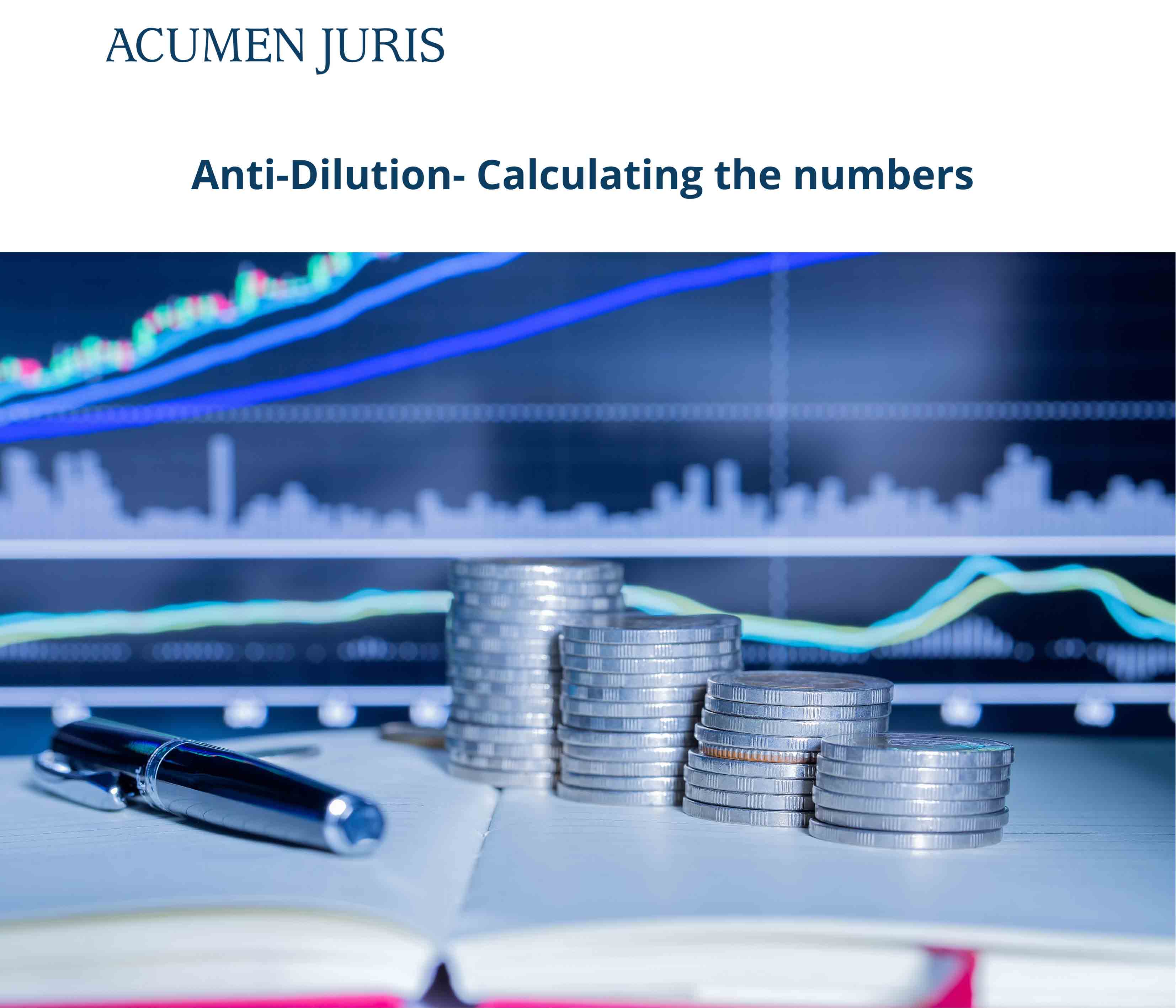



Mr. Govind Rishi is one of the partners of the Acumen Juris, he is alumnus of prestigious Campus law Centre, University of Delhi. He has been enrolled with Bar Council of Delhi. He has an experience of more than 15 years in litigation, arbitration and corporate consultancy including proceedings under civil laws, labour laws, company laws, intellectual property laws, business laws, arbitration, corporate laws, criminal laws and others and has served diverse industries but not limited to including manufacturing, IT service provider, real estate, infrastructure, banking, telecom, advertisement / promotional, aviation, energy, waste management, and retail.
Mr. Govind Rishi is panel advocate for Punjab National Bank and NBCC India Limited. He also heads the insolvency prctice of the firm.

Mr. Abhishek Bansal, a law graduate from Faculty of Law, University of Delhi and a member of the ICSI, has 15 years of experience to his credit. He is one of the Partners of the Acumen Juris and has been enrolled with Bar Council of Delhi. He is practising in providing services in cross border investment transactions, foreign collaboration and joint ventures, negotiations and agreement drafting. He also specializes in conducting legal due diligences, drafting business and commercial agreements, advising on corporate commercial laws, capital market and security laws, India entry and global business set up services, resolving complex corporate structuring issues, rendering strategic advice and approvals under competition law. He is also practising in the newly enacted insolvency and bankruptcy law in India.He has served for sectors including retail, logistics, hospitality, auto-ancillary, service, real estate, NBFC, IT, gems and jewellery, medicines, art fairs, defence, media, manufacturing, PSU etc.Mr. Bansal has co-authored 5 editions of bestselling book on Companies Act 2013 published by Wolters and Kluwer. He has successfully conceptualized and created the only website on Foreign Exchange Control Laws in India i.e. www.femaindia.in.He has also authored many articles on Corporate Laws including foreign exchange control laws, company law, stamp act, contract laws, competition laws and constitution of India on legal portal and magazines. He also acted as speaker at various forums like IICA, ICSI, ASSOCHAM, CKF, etc.

Abhishek is having more than 15 years of experience. He is a research oriented professional and possesses rich and varied experience in M&A, Valuation Analysis, Transaction Advisory and Investment Banking. He specializes in Mergers & Acquisitions, Business Valuations, Corporate Restructuring, domestic and cross border joint ventures deal structuring & negotiations, financial reengineering, business modelling and has hands on experience of conceptualising and managing more than 60 M&A transactions.
Abhishek has also led and executed more than 1800 Valuation of Companies including Share Valuations, Complex Financial Instruments, M&A and Intangible Valuations (Brand Valuations) for eminent companies covering various industries including Automobile and Auto Components, Hotel & Tourism, Healthcare and Healthcare Equipments, EduTech, Foods & Beverages, SpaceTech, AgriTech, Consumer Durables, Co-Living & Co-Workings, Textiles & Apparels, Logistics, Telecom Service and Equipments. Some of his distinguished Clients includes Siemens Healthcare, GMR Group, Minda Group, FabIndia, Aecom, Kinara, Bira 91, DLF Group, Sterlite Group, Organic India, Federal Mogul, Extramarks, Vedantu, PristynCare, Skyroot, Wysa, Healthians, BabyChakra (GoodGlam Group), Unacademy, UrbanClap, Urban Ladder, etc.
Abhishek is an alumnus of Price Waterhouse Coopers (PwC) and a Delhi based SEBI Registered (Cat -1) Merchant Banker

Mr. Manish Dubey is a fellow member of ICAI having a rich experience in providing end-to-end solutions in direct & indirect taxation, developing and implementing financial systems, devising strategies, processes and controls, and establishing accounting functions and systems. He specializes in devising tax efficient structures, handling tax investigations and providing GST advisory. He also holds extensive record of making successful representations before various tax authorities and tribunals.He is deeply passionate towards growing start-up sphere and has been credited with accelerating the growth of various start-ups through arranged venture capital funding and providing comprehensive taxation and financial solutions. He is also associated with various start-ups as their mentor. He has been a vocal advocate of GST laws and has been presenting his unique insights to the industry and professionals alike at numerous seminars and conferences.

Chartered Accountant and Company Secretary with more than 16 years of finance experience. Expertise in fund raising (Domestic/ International), debt management, addressing security structure, working capital management, strategy and compliance, finance cost management, business plans, financial MIS, project evaluation, KPIs identification and setting, cash flow forecasting and structuring, stakeholders management, liaison with Lenders, transaction structuring, legal/ transaction documentation, Rating management, due diligence, IPO readiness, and other regulatory advisory (FEMA, RBI, etc.). Ex Varuna Group (Head F&A, CFO); Apollo LogiSolutions; BILT; Jubilant Pharmova and PolyplexSummary of major experience:? Lead/ part of various long-term fund-raising assignments not restricted to RTL, ECB, Bond, ECA, Private Equity? Handled working capital for more than Rs. 3,000 Crores across Companies? Handled debt profile for more than Rs.10,000 Crores covering long term/ short term, fund based/ non fund based, RTL/ ECBs/ ECA, replacement financing/ project financing, vehicle financing/ receivables discounting/ vendor financing? Dealt with more than 30 banks/ financial institutions over years, ? Handled various types of documentation not restricted to funding, private equity, business contracts etc.? Experienced in framing business guidelines for logistics vertical? Handled Business plans for various purposes? Experienced in various industry i.e., manufacture of polyester films, paper industry, pharmaceuticals, integrated logistics company (having CFSs, ICD, FFD, Warehousing, Road Transportation, Rail Transportation), Hospital, Hydro, Hypermarket, SEZ.? Experienced in rationalizing security structure across lenders

Mr. Ashish Goyal is a fellow member of ICAI and a commerce graduate from the University of Delhi having a rich experience of more than 10 years in providing end-to-end solutions in direct & indirect taxation, audit, assurance, direct and indirect tax litigation, developing and implementing financial systems, devising strategies, processes and controls, and establishing accounting functions and systems. Mr. Goyal is also a Certificate Concurrent Auditor as certified by ICAI. Mr. Goyal has consistently been advising his client with their tax disputes and have been representing his clients in their direct and indirect (GST) tax litigation before various judicial forums, including Income tax Appellate tribunal (ITAT), Commissioner of Income Tax (Appeals). Mr. Goyal is a member in good standing of New Delhi Sales Tax Bar Association for over 8 years. Mr. Goyal has been engaging with various banks as his client towards their accounting, auditing, and taxation related requirements, and have conducted stock audit for various banks. Mr. Goyal has been presenting his unique insights to the industry and professionals alike at numerous seminars and conferences, and is a member of various study circles, management groups and associations. Mr. Goyal also possess in depth knowledge of financial market and consistently analyse stock market performance and other related economic indicators.



The unforeseen pandemic COVID-191 has brought an extensive disruptive effect on the businesses, the world over. The rapid momentum of proliferation of COVID-19 and its lethal consequences has forced the nations globally to take unprecedented steps towards containing the outbreak and to recover from the pandamic, including the complete cessation of not only the international air traffic but also the domestic traffic within.

1. What is meant by the term ‘force majeure’?
Force Majeure is defined to mean “superior force” or “an event or effect that can be neither anticipated nor controlled”. Force Majeure events may include events such as floods, war, terrorism, earthquakes, other natural calamities or other events that may neither be anticipated nor controlled.

During this difficult time, with a view to boost the economy and as a reform to promote ease of doing business, the government of India has been making tremendous efforts in clearing backlogs/disputes/appeals under direct and indirect taxes which has resulted in the launched settlement schemes under direct tax (vivaad se vishwas scheme) & indirect tax (sabka vishwas scheme).

In its endeavour to contain COVID-19 pandemic, the government has promoting the idea of social distancing and issuing directions and taking other preventive and mitigating measures. Resultingly, with limited physical movement , accessibility of legal forums including the registry for the purposes of filing of proceedings (including petitions/applications/suits/appeals/all other proceedings) across India has become difficult for the litigants. Hence, Hon’ble Supreme Court acknowledging the unprecedented situation, , has taken suo moto cognizance and vide order dated March 23, 20201 (“Order”) has extended the period of limitation for all the proceedings with effect from March 15, 2020 till further orders.

The COVID -19 pandemic has caused disruption of business and life in the entire world and India is not immune to it either. The governments across the globe have taken several measures, some of which are unprecedented, in order to minimise the impact of this pandemic.

The unequivocal lockdown declared by the Government of India towards the end of March 2020 is primarily considered to be the most potential and effective preventive measure against COVID-19. However, everything has its own cost and in the present case, where India is undergoing economic slowdown, which may make many Indian corporates an easy target for acquisition by foreign entities

During this difficult time of global crises owing to COVID – 191 (“C-19”) pandemic, our Government has duly recognized the tough times Indian businesses are facing all over the nation and hence, Reserve Bank of India in consultation with the Government of India, and the Government of India itself has prescribed certain measures in order to liberalize the developmental and regulatory policies applicable on them. These measures are expected to mitigate the numerous disruptions on account of the C-19 pandemic and to ensure the continuity of viable businesses.

Foreign investments in India have always been regulated since the beginning. Supervision on such investments has seen a phase of liberal view as opposed to restricted view applicable in the earlier years. Hence, with a constant need to align the rules to accommodate the changing cross border investments trend, the Ministry of Finance (“MoF”) has come up with the second amendment on the recently notified Foreign Exchange Management (Non-Debt Instruments) Rules, 2019 (“Principal Rules”) vide issue of notified Foreign Exchange Management (Non-Debt Instruments) (Second Amendment) Rules, 2020 (“Amendment Rules”) on April 27, 2020

In view of the continuing restrictions on the movement of persons at several places in the country, Ministry of Corporate Affairs (MCA) now vide its circular dated 5th May, 20201 (“Circular-3”)has allowed companies to conduct their annual general meetings (AGM’s) through video conferencing (VC) or other audiovisual means (OAVM), during the calendar year 2020, subject to the fulfillment of the certain requirements. Earlier, MCA has provided provision for holding extraordinary general meetings (EGMs) through VC or OAVM facility upto 30th June, 2020 vide circular dated 8th April, 20202 (“Circular-1”) and 13th April, 20203 (“Circular-2”).

This chart seeks to outline the differences between a Non-Deposit Taking – Systematically Important NBFC (NBFC ND-SI) and Non-Deposit Taking – Non-Systematically Important NBFC (NBFC ND-NSI). For the said purpose, the criteria for deciding the status of systematically important NBFC is imperative and hence, the same is mentioned below

Severability Clause, or Separability Clause, a boilerplate clause often finds its little space in the last pages of a contract. This clause, since bearing considerable implications, is never overlooked by the parties to a contract. The Severability Clause is based on the ‘Doctrine of Severability’ or ‘Doctrine of Separability’, in according to which, in the event, any provision of a contract is rendered illegal or void, and therefore, not enforceable, the remaining provisions shall be severed and enforced independent of the unenforceable provision, provided such severance does not adversely affect the effectuation of the intention of parties to such contract.

The term ‘Waiver’ in general usage means to renounce any right or claim. It is a conscious informed decision that a party takes with respect to the renunciation of any right or claim that some other party is obliged to perform. Black’s Law Dictionary defined Waiver to mean the voluntary relinquishment or abandonment - express or implied - of a legal right or advantage;…The party alleged to have waived a right must have had both knowledge of the existing right and the intention of forgoing it. Accordingly, essential elements of a Waiver shall include

India is rapidly progressing in its developmental goals and more women are joining the workforce, resulting in the sexual harassment of women at the workplace is becoming increasingly prevalent in India. Sexual harassment at the workplace is an extension of violence in everyday life and is discriminatory and exploitative, as it affects women’s right to life and livelihood

Supplemental to our previous writing on ‘Investor Protection Rights - Share Subscription and Shareholders Agreement’ , this article focusses on various ‘Exit Rights’ sought and negotiated by the Investors while making investments, where such Exit Rights are aimed towards providing an exit opportunity to such an Investor in either of the following manners

India’s start-up sector is snowballing with new start-ups setting up every other day with novel business ideas. Also being witnessed is the considerable public investments and listing of the start-ups that have turned into a unicorn in a short span.

This Article outlines the criteria and process for registration of Alternative Investment Fund with the regulator of the securities market, Securities and Exchange Board of India (“SEBI”) pursuant to the provisions of SEBI (Alternative Investment Fund) Regulations, 2012, as amended from time to time.

Anti-Dilution means protecting against the dilution, and is the fundamental right sought by the investors globally to protect their investments from dilution. With the present era of technology, start-ups, and investments, there is a race amongst the start-up founders to innovate and develop new ideas and the investors to look for promising start-ups in order to invest. However, the investors simultaneously look for certain rights to protect themselves from dilution against any future pricing, since such pricing of new businesses are based on the prototype, the pilot model or the traction in the business model of the start-up, and is all notional and entirely pertains to the business it could develop and earn, and not the actual revenue stream or profit earnings. The investment strategy that the investors undertake is to invest in the potential start-ups, publicize it, develop it so that it reaches a certain benchmark, and then re-invest, publicize and develop it and keep repeating this process, but every time at a higher valuation, thereby increasing the worth of the start-up.

Foreign Direct Investment (FDI), in addition to being a key driver of economic growth, has been a significant non-debt financial resource for India's economic development. Foreign corporations invest in India to benefit from the country's particular investment privileges such as tax breaks and comparatively lower salaries. This helps India develop technological knowhow and create jobs as well as other benefits. investments have been coming into India because of the government's supportive policy framework, vibrant business climate, rising global competitiveness and economic influence.

The Indian gaming market growing at a CAGR of 30% is expected to grow from $2.8 billion in 2022 to $5 billion in 2025. The number of gamers is expected to rise from 420 million in 2022 to 500 million by 2025. Considering the evolution of the industry and the involvement of public at large, the government with a view to safeguard the public money from the detrimental effects of online gaming decided to provide for a regulatory mechanism and thus has recently released draft amendments to the Information Technology (Intermediary Guidelines and Digital Media Ethics Code) Rules,2021 (�the 2021 Rules�) to bring online gaming intermediaries operating online games under the ambit of the Rules.

Non-Banking Financial Company (NBFC) is a company registered under the Companies Act, 2013 of India, they operate in the financial sector providing a variety of financial services. These are financial institutions that offer various banking services, similar to banks, but they do not hold a banking license. NBFCs can provide services such as loans and advances, acquisition of shares/stocks/bonds/debentures/securities issued by government or local authorities, leasing, hire-purchase,